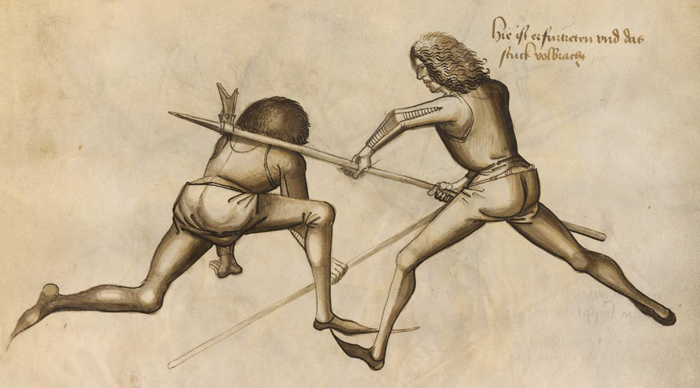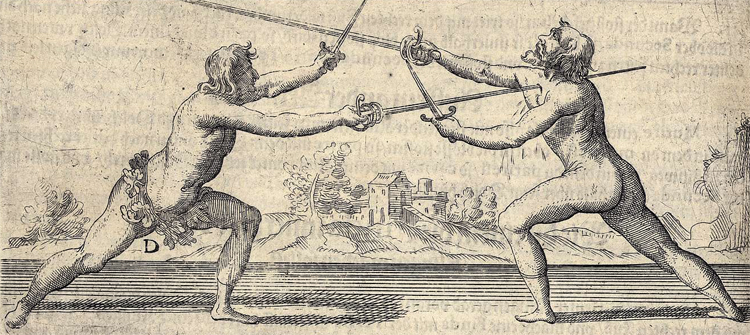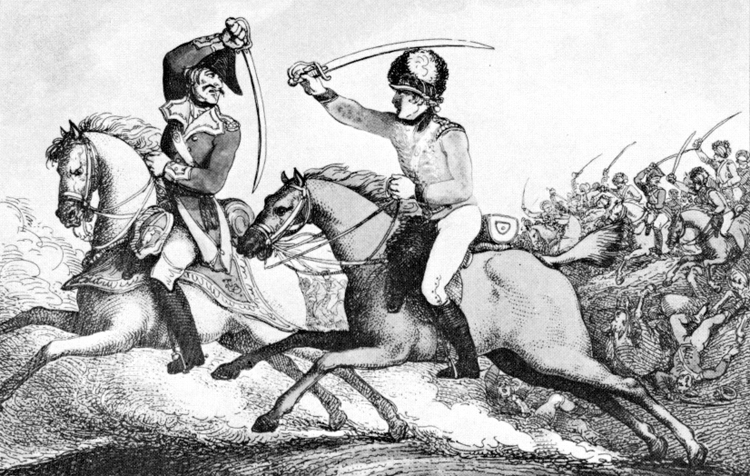

Manifesto
(17 August, 2007)
The Historical European Martial Arts Coalition (HEMAC) is a pan-European coalition of martial artists and researchers dedicated to the study of traditional European fighting arts and martial traditions. HEMAC has members throughout Europe.

HEMAC has four sets of goals:
Martial, Research, Outreach, and Community.
Martial Goals
- To reconstruct historical martial arts from primary sources
- To refine our interpretations into viable, effective martial arts
- To facilitate the exchange of martial theory and technique
- To test our martial skills in a variety of competitive environments
- To develop a teaching methodology for transmitting the arts
- To train the next generation of HEMA practitioners
Research Goals
- To locate and copy primary source material related to HEMA
- To transcribe and translate primary sources
- To facilitate the sharing of information and research
- To better understand the socio-historical context of the arts
- To seek out & study living European martial traditions
- To train the next generation of HEMA researchers
Outreach Goals
- To promote and publicise the Historical European Martial Arts
- To dispel misconceptions & stereotypes
- To educate the general public
- To educate the martial arts, sport fencing, and re-enactor communities
- To recruit a new generation of HEMA practitioners & researchers
Community Goals
- To establish a network of individuals and groups devoted to HEMA
- To foster close friendships and a sense of community among members
- To organise at least one annual HEMAC event (Dijon, France)
- To support other HEMAC events by attending, teaching, or lecturing
HEMAC is none of the following
- Medieval & Renaissance Re-Enactors
- Society for Creative Anachronism (SCA)
- Stage Combat enthusiasts
- Live Action Role Players (LARP)
- Sport/Olympic Fencers
- Asian Martial Artists
Despite this, many HEMAC members have contacts with (or belong to) one or more of the categories above. HEMAC values diversity, and welcomes members from a variety of backgrounds.

Organisational Aspects & Guiding Principles:
HEMAC has no president, no elected officers, and no board of directors. While its pan-European nature may help to standardise the study of HEMA in different European countries, HEMAC is not a governing body, attempting to impose rules on national HEMA groups. Nor is it a certifying body for fencing masters or instructors.
In fact, HEMAC is not a legal organisation or a corporate entity at all, but rather a loose coalition of like-minded individuals sharing a common set of goals. While not every member actively pursues each of the listed goals, all members recognise those goals as valid endeavours in the study of HEMA.
HEMAC is composed of individuals rather than groups. While a group containing one or more HEMAC members may call itself a “HEMAC Member Group”, those HEMAC members still only count as individuals within HEMAC’s structure.
Every voice is important in HEMAC. Therefore, decisions affecting HEMAC as a whole are made by discussion and debate, with a view toward reaching consensus. Ideally, HEMAC decisions accommodate the views of all members. Accordingly, HEMAC will resort to voting only in the cases when consensus cannot be reached.
Even when consensus cannot be reached, HEMAC recognises that reasonable minds can differ, and tolerates a wide variety of viewpoints within the same organisation. Rather than imposing dogmatic positions on members, HEMAC prefers to encourage members to follow their own paths in the pursuit of the martial arts.
HEMAC’s emphasis on individuality and diversity extends to the use of language as well. HEMAC does not have an official language, nor are members required to be English speakers. As a practical matter, however, HEMAC’s membership mainly communicates in English, which eases the flow of information across national boundaries.

Membership Rules:
HEMAC membership is open to individuals residing in Europe or holding European passports. If a HEMAC member who is not a citizen of a European country moves outside Europe, he may remain a member, if it is agreed by a consensus of the HEMAC membership.
Applicants seeking entry into HEMAC must be sponsored by a current member. The HEMAC membership normally votes on such applications by expressing their opinions on the HEMAC internal mailing list. As a general rule, applicants must be personally known to their sponsor, and must have attended a major HEMAC event such as the HEMAC Annual Gathering at Dijon. Applicants who otherwise meet with the membership’s approval but who have not yet attended a HEMAC event will be granted probationary membership until they attend a major event.
One of HEMAC’s goals is to foster a sense of fraternity and community. While differences of opinion are inevitable, members are strongly encouraged to treat one another with respect and to act toward each other in good faith.
Ultimately, HEMAC membership is conditional upon good behaviour. Members may lose their membership for disruptive conduct or unacceptable misbehaviour, if agreed by a substantial majority of HEMAC members.





